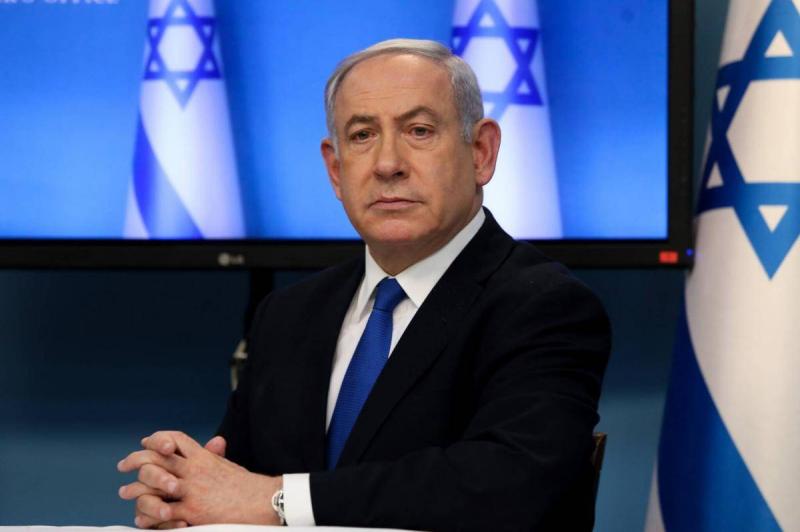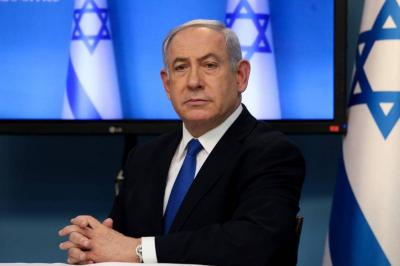Israeli Prime Minister Benjamin Netanyahu continues his maneuvers and procrastinations to thwart the efforts of mediators and refuses to sign a ceasefire agreement with Hamas, aiming to prolong the war in Gaza while leveraging time until the upcoming U.S. elections. Netanyahu uses various pretexts in each round of negotiations to evade completing the agreement and extends the conflict, even though the deal being negotiated has been approved by U.S. President Joe Biden, who also seeks to finalize it before the American elections.
In this context, Egyptian expert Major General Mohamed Ibrahim Al-Dweiri, Deputy Director of the Egyptian Center for Thought and Studies, confirmed to "Al Arabiya.net" that Netanyahu is indeed delaying the signing of the ceasefire agreement until the U.S. elections to free himself from Biden's pressures. He added that the Israeli Prime Minister does not wish to reach any agreement before reaping the benefits of his recent visit to Washington, also emphasizing that it is possible to reach an agreement before the start of the U.S. elections, but it will not end the war completely unless he achieves all his objectives.
Additionally, the Egyptian expert revealed that Netanyahu is betting on Donald Trump returning to power, as he is a strong ally who recognized Jerusalem as Israel's capital, decided to move the U.S. embassy to Jerusalem, and proposed the "Deal of the Century," which granted Israel more than 30% of the West Bank. Al-Dweiri pointed out that understanding the trends governing Netanyahu's thought regarding the Palestinian issue requires considerable effort, especially since his extreme positions are clear.
The Egyptian expert stated that "Netanyahu, since he took over the current government in December 2022, has succeeded in forming a strong governmental coalition that could last until 2026, unless significant internal changes occur that topple the coalition. However, the Israeli war on Gaza that began on October 7, 2023, has shaken the coalition, proving the ineffectiveness of Israeli measures to protect the Gaza border area and exposing the Israeli army's failure to achieve all the goals Netanyahu set since the beginning of operations."
He pointed out that despite the ongoing protests pressuring Netanyahu to agree to a second ceasefire that would lead to the release of Israeli hostages held by Hamas and resistance factions, he is still able to withstand public opinion pressure. Al-Dweiri added that Netanyahu's priority is to maintain his current coalition, disregarding all domestic and external demands for concluding a hostage deal. He recently succeeded in passing a law in the Knesset rejecting the establishment of a Palestinian state, which strengthens his position by asserting to the world that there is a unified Israeli stance against the establishment of a Palestinian state, claiming it threatens Israeli security and existence.
The Egyptian expert also confirmed that one of the positions that would fortify Netanyahu's stance is his anticipated speech before Congress on July 24, which will highlight the depth of strategic relations between the two countries. He noted that any pressures exerted by Washington that contradict his positions would not be heeded, reiterating that Netanyahu is placing significant hope on Trump's return to power to revive the "Deal of the Century."
The expert revealed that Netanyahu would focus on making his speech in Congress and any potential meeting with Biden a clear message to America, as the largest supporting state for Israel, that Israel is facing an unprecedented existential threat from Iran and its proxies in the region, especially Hamas and Hezbollah. This scenario necessitates Washington's continued and unconditional support, and it should refrain from exerting any pressures that conflict with the requirements for Israeli security, particularly the principle of the two-state solution currently adopted by the administration.
Based on this analysis, as the Egyptian expert concludes, Netanyahu will continue to procrastinate and delay finalizing the ceasefire until after his visit to Washington, during which he aims to achieve four main objectives: first, to secure more military, political, and economic support to maintain his coalition; second, for Israel to have a decisive say in the nature of the post-war situation to prevent Gaza from becoming a future threat to Israel; the third goal is to ensure that Washington does not impose any solutions he does not approve of, so he can achieve his objectives against Hamas; and the fourth goal is to affirm that there will be no place for a Palestinian state alongside Israel in the future.




